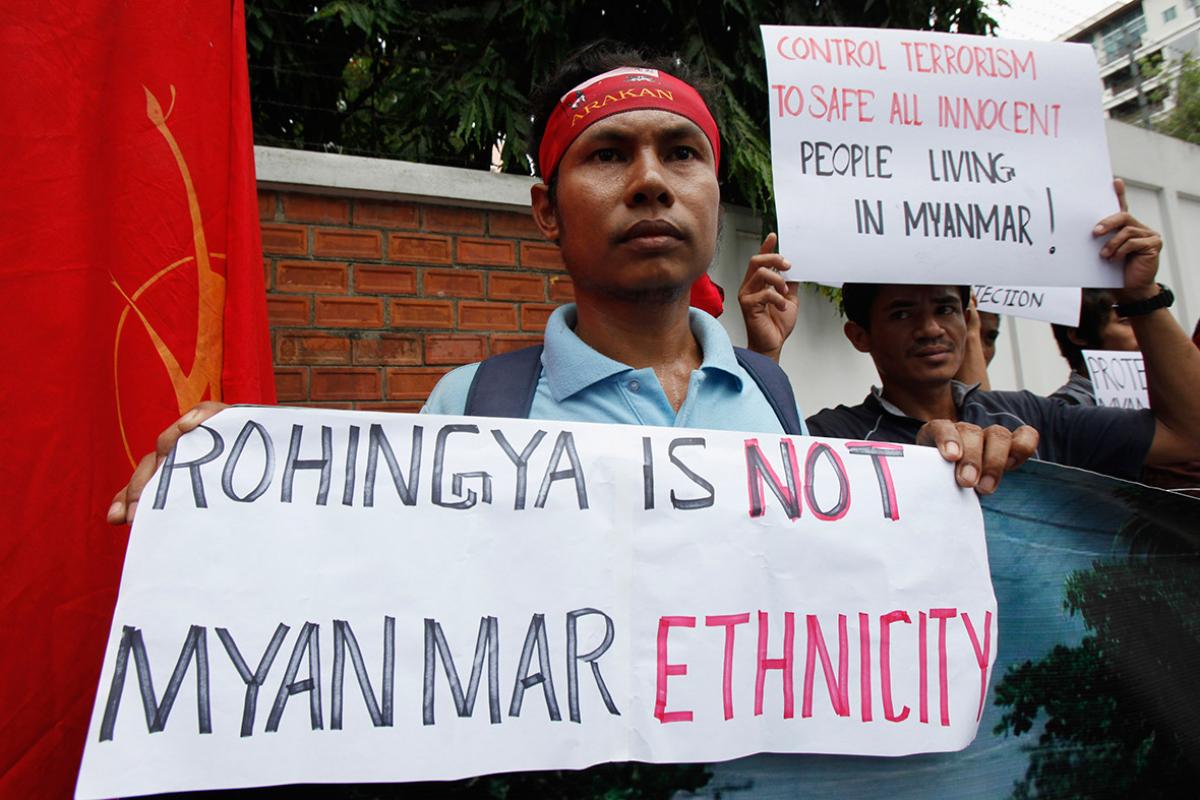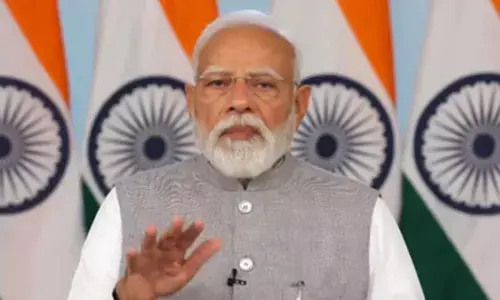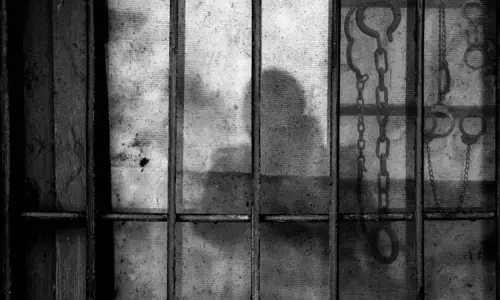 The ongoing plight of the Rohingya in Myanmar is talked about a great deal throughout the world, but still remains without a solution. Despite having lived in the country for several generations, the Rohingya are not even recognized as one of Myanmar’s 135 ethnic minorities.
The ongoing plight of the Rohingya in Myanmar is talked about a great deal throughout the world, but still remains without a solution. Despite having lived in the country for several generations, the Rohingya are not even recognized as one of Myanmar’s 135 ethnic minorities.
According to official figures, Muslims constitute 4% of the country’s populace, while experts suggest they make up ten percent of the country’s population of 51 million. Despite this, since the passing of the country’s 1982 citizenship law, the Muslims living in the state of Rakhine are not recognized as an ethnic group, and declared as ‘stateless,’ stripping them from basic civil rights such as education and health.
In addition to the abolition of their legal presence in their own country, there has been a rise in antagonism against Muslims in Myanmar following the replacement of the military junta in 2011. In the face of clashes that broke out in 2012 and ended in the deaths of hundreds of Rohingyas in the country, many Muslims were forced from their homes and workplaces and taken into refugee camps. The Myanmar government prevented them from moving within the country. Eventually, due to this inhumane onslaught, according to UNHCR, South-East Asia Mixed Maritime Movements, April - June 2015 estimates, between January 2012 and June 2015, some 150,000 people fled from the Myanmar-Bangladesh border area.
Currently, there are about 140,000 Rohingya who live in Internally Displaced People’s camps (IDP). While trying to run away from the daily killings and clashes in their homes, some even fled the country on rickety boats by sea and this was when the global community finally recognized the plight of the Rohingya Muslims. The United Nations reported that 370 Rohingyas drowned between January and June of this year. According to Amnesty International, however, the actual figure is likely much higher. Witnesses state that dozens of boats have set out from the shore, but that only a few have reached Indonesia or Malaysia.
In other words, the drama of the Rohingyas is continuing beneath the radar and they are still being persecuted most feverishly by extremist groups in the country. The most hostile ones targeting the Rohingya are extremist Buddhist monks such as Wirathu and his nationalist 969 group along with the hardline nationalist political movement Ma Ba Tha. These fanatics have in recent years held many rallies across the country inciting violence against Muslim minorities and have introduced four discriminatory “race and religion bills” which further diminish the rights of all non-Buddhists.
The way in which extremists have resorted to physical and political assaults and have been promoting fear and hatred against Muslims were publicly criticized by the USCIRF (United States Commission on International Religious Freedom) this year. “Burma cannot expect to build a democracy while sowing religious and ethnic hatred and divisions. With these elections, the country moved the needle in its political transition, but it has not yet become a rights-respecting nation that genuinely adheres to international standards for religious freedom and related human rights,” said Chairman George. The same governmental body recommended in 2015 that Burma be designated as a “country of particular concern,” or CPC, under the International Religious Freedom Act for its particularly severe violations of religious freedom.
In the meantime, while the elections held in Myanmar last month resulted in a major success for the National League for Democracy (NLD) under opposition leader Aung San SuuKyi, that success does not necessarily mean that the country is now fully democratic. The Rohingyas are no doubt quite pleased at the fall of the existing regime, but they are also not entirely happy with SuuKyi, of whom they held high hopes in the past. The ongoing tragedy afflicting Myanmar’s Muslims will head the list of matters that the regime will not wish to change.
In fact, the United Nations has also been monitoring the events in Myanmar for a very long time. The UN Human Rights Council has published five reports about Myanmar and the UN General Assembly has adopted 15 separate resolutions. In the latest of these, dated February 24, 2014, the General Assembly reported on arbitrary arrests and detentions, forced displacement, rape, torture, discrimination affecting various ethnic and religious minorities, violence and violations of international humanitarian law. In the wake of that report, the UN Security Council considered the question of Myanmar in its session on May 29, 2015.
On top of all this history of ill treatment of the Rohingya, the reports specify the deaths of five people in the townships of Akyab (Sittwe), Pauktaw, Kaukpru, Kyauktaw and Buthidaung in December 2015 alone as a result of violence. The details of these callous acts of murder present an unidentified person hanged on December 7, 2015 in Kyaupru (Narinjara) and 25-year old MaungHla Bray Aung hanged on November 17, 2015 in the same town. The other people who were hanged the same way were MaungMaung and Mohammed Musa, 25, in Buthidaung, Mohammed Harun, 27, in Sittwe and Kasim, 27, in Pauktaw; the report duly notes that rape, extortion, confiscation, discrimination, physical attacks and many other heinous crimes are going on.
The International State Crime Initiative has described this most obvious abuse as “systematic, planned and targeted weakening of the Rohingya through mass violence and other measures, as well as the regime’s successive implementation of discriminatory and persecutory policies against them, which amounts to a process of genocide” in its 2015 year dated report. This is a clear pronouncement to people of good conscience all over the world, including representatives of governments, international human rights organizations, non-governmental bodies, opinion leaders, members of the media, academics and journalists to make this pogrom their agenda.
If the discriminatory policies of Myanmar are not obliterated, and the democratic rights of every ethnic group and faith - including the Muslim Rohingya - are not secured, that would be detrimental for the entirety of the people of Myanmar who seek peace, democracy, harmony and open and unreserved international friendship for their country. The global community witnessing this obvious “genocide” of the Rohingya is about to lose its ability to trust the Myanmar government to stand for human rights, justice and freedoms for the whole nation and that leaves Myanmar, and its people, in a precarious position.
By Harun Yahya
The writer has authored more than 300 books translated in 73 languages on politics, religion and science. He may be followed at @Harun_Yahya and www.harunyahya.com

 The ongoing plight of the Rohingya in Myanmar is talked about a great deal throughout the world, but still remains without a solution. Despite having lived in the country for several generations, the Rohingya are not even recognized as one of Myanmar’s 135 ethnic minorities.
The ongoing plight of the Rohingya in Myanmar is talked about a great deal throughout the world, but still remains without a solution. Despite having lived in the country for several generations, the Rohingya are not even recognized as one of Myanmar’s 135 ethnic minorities. 



